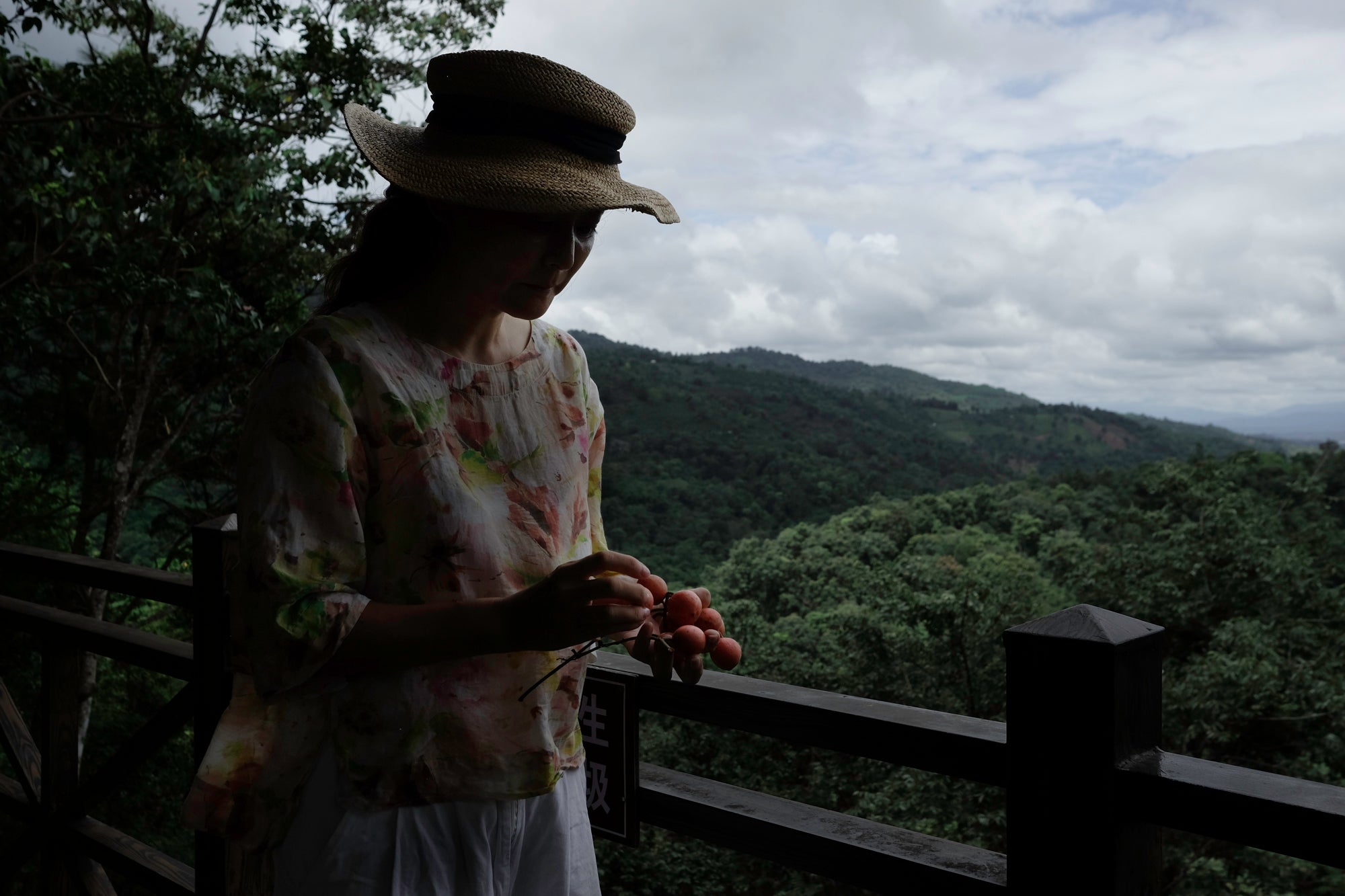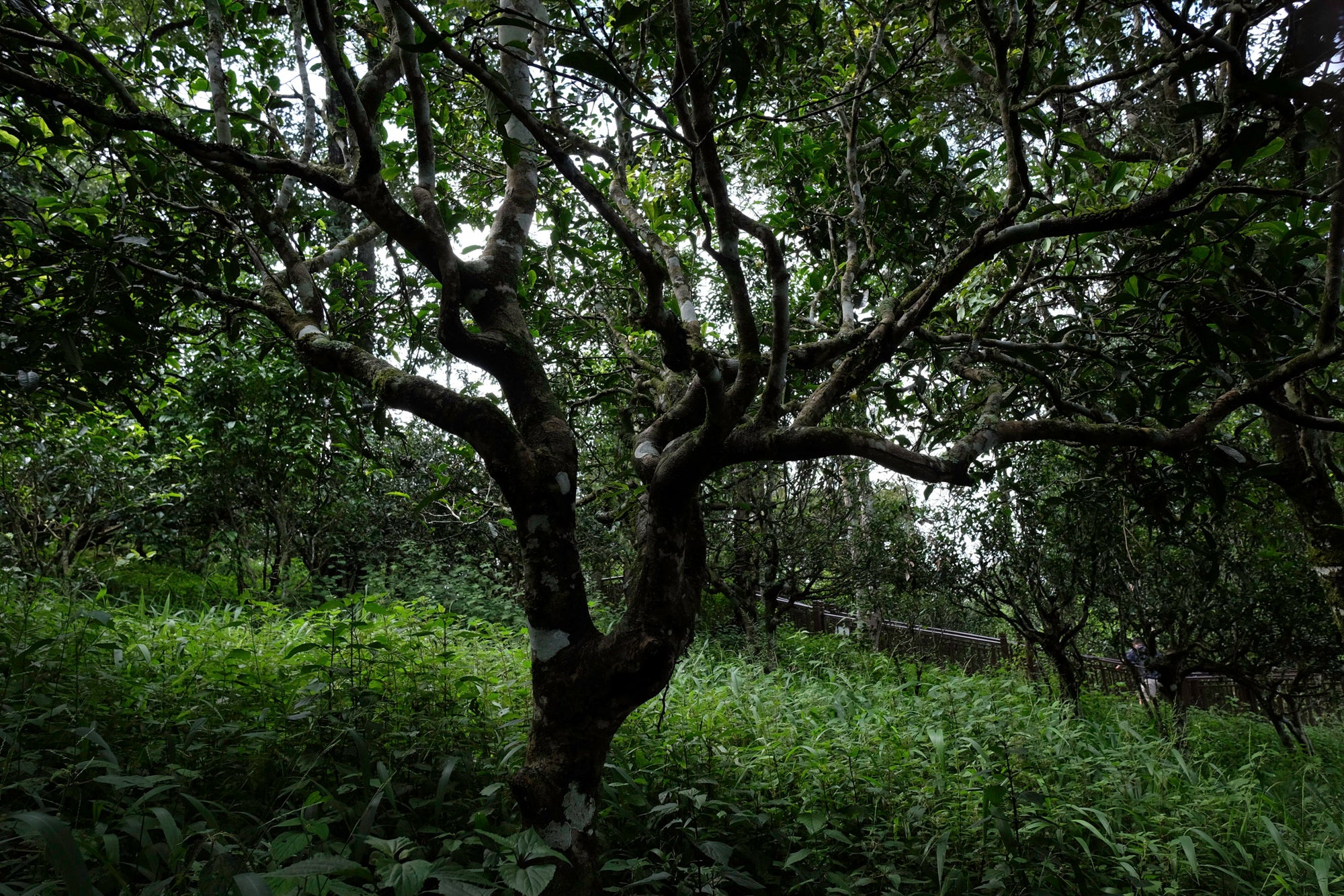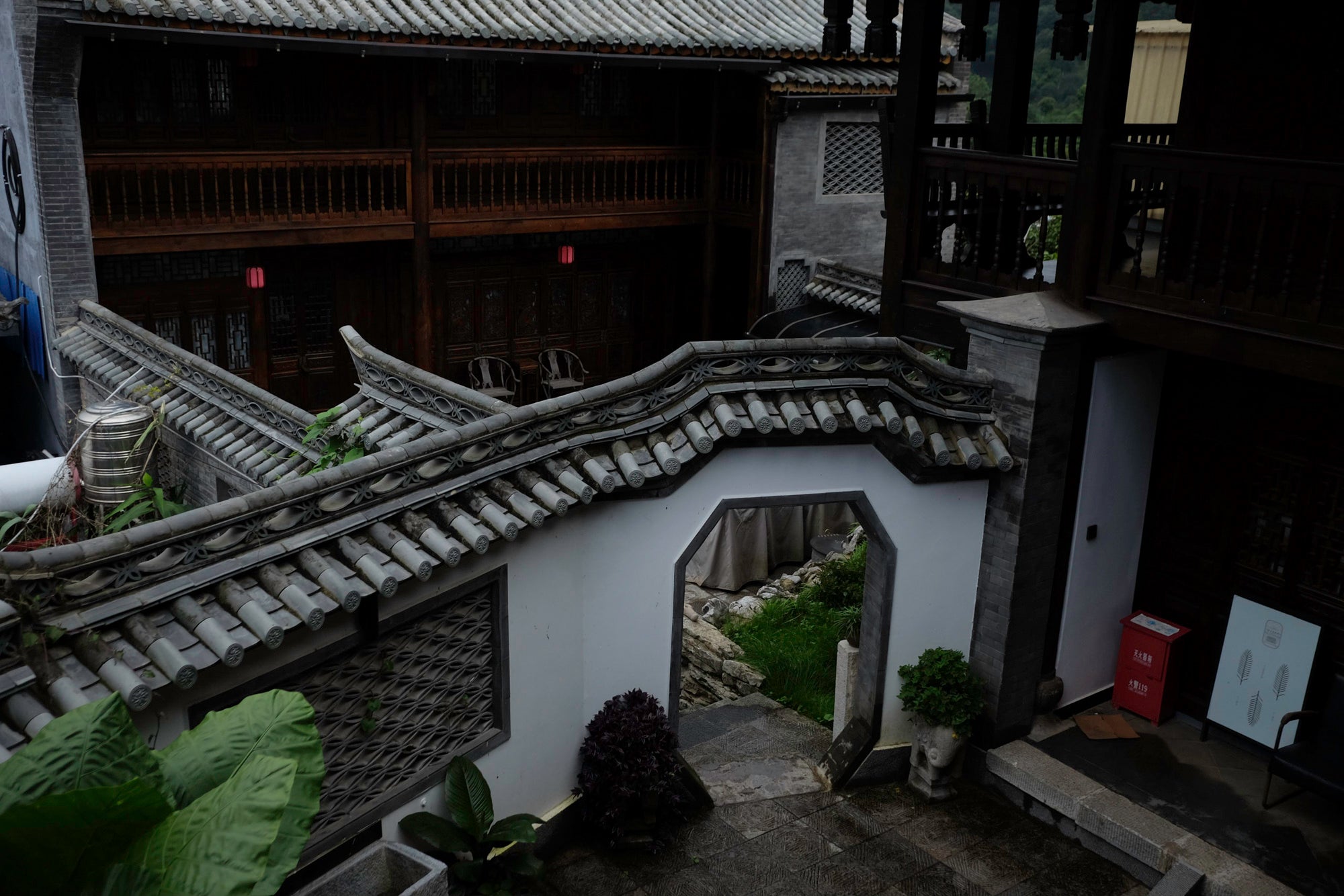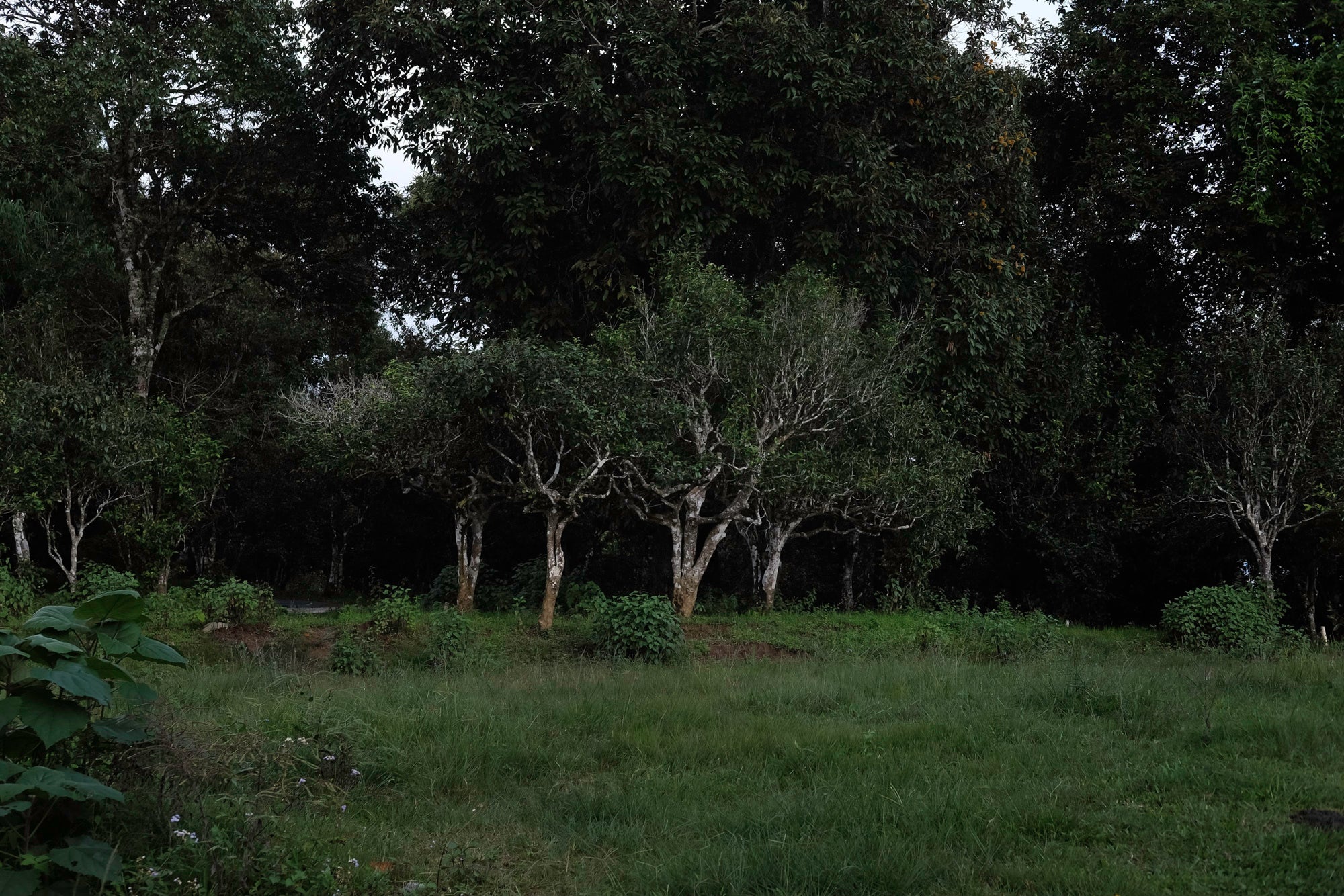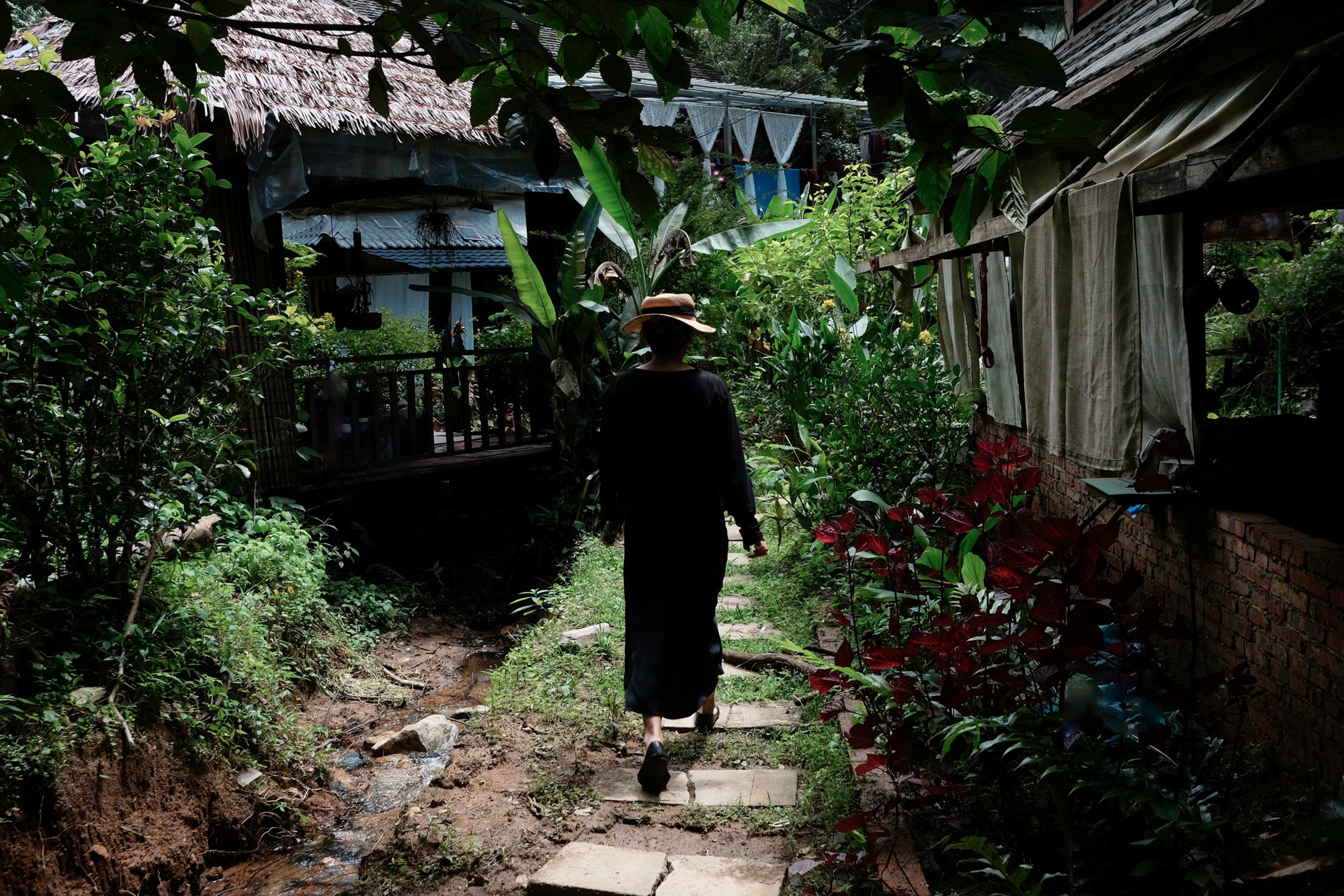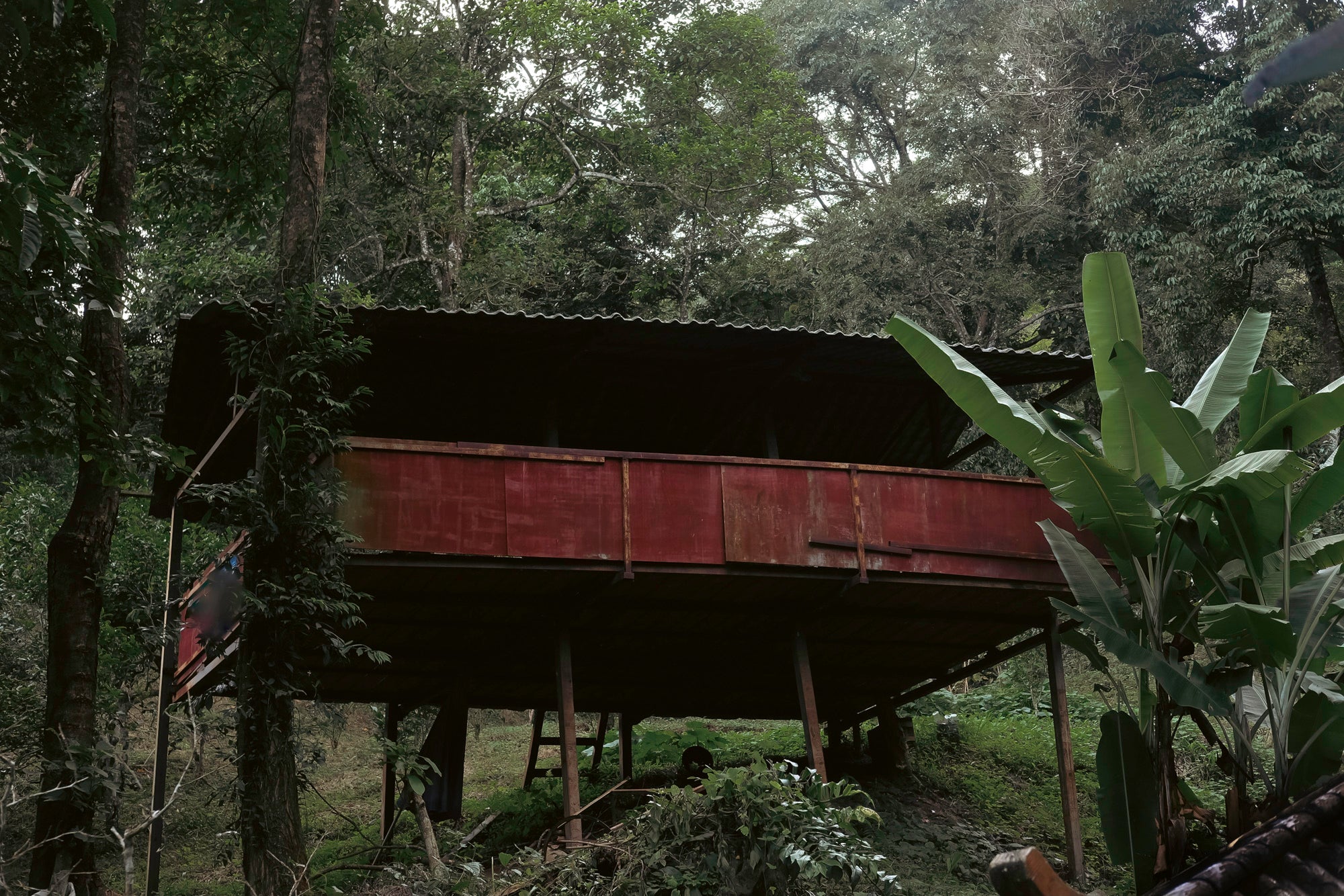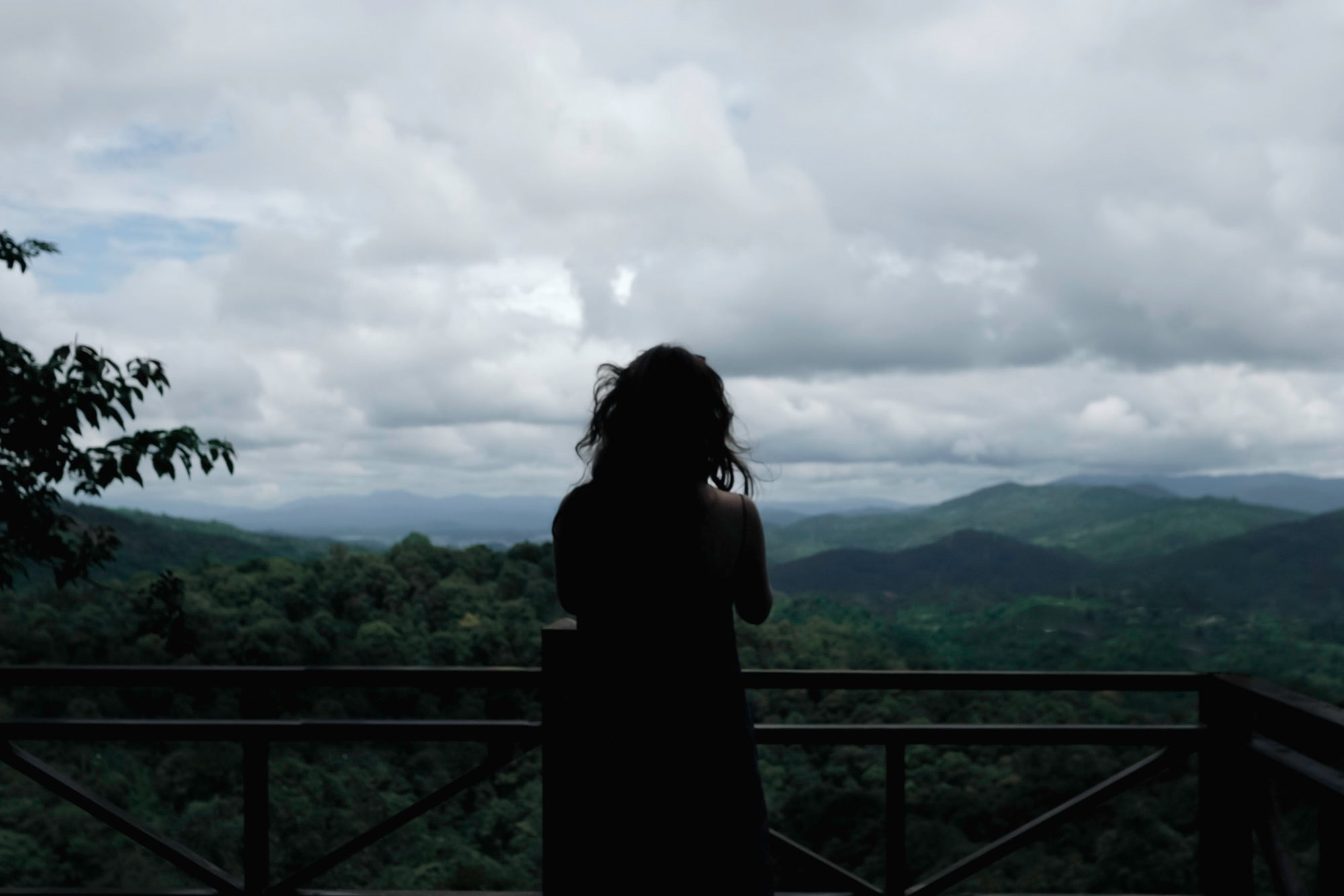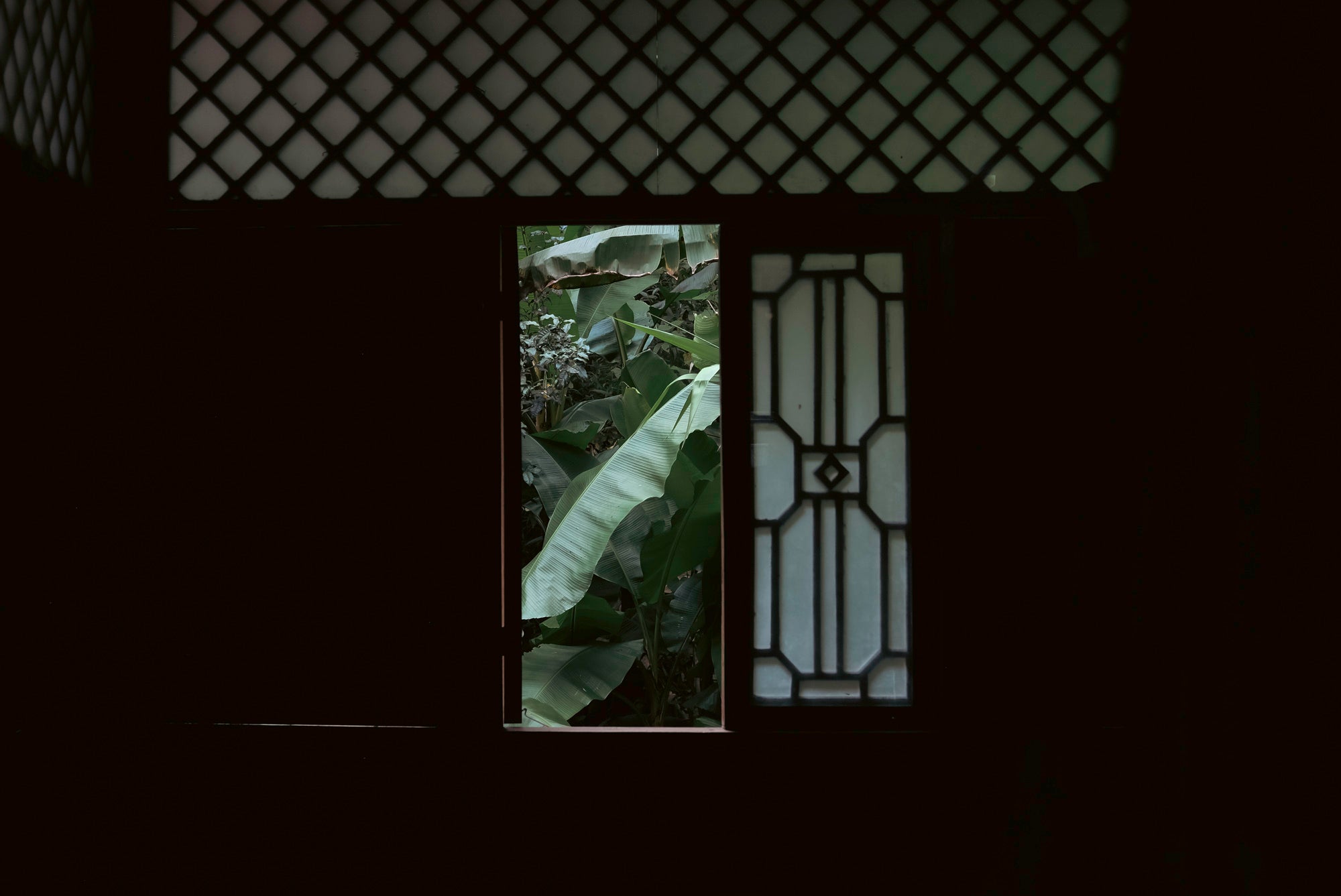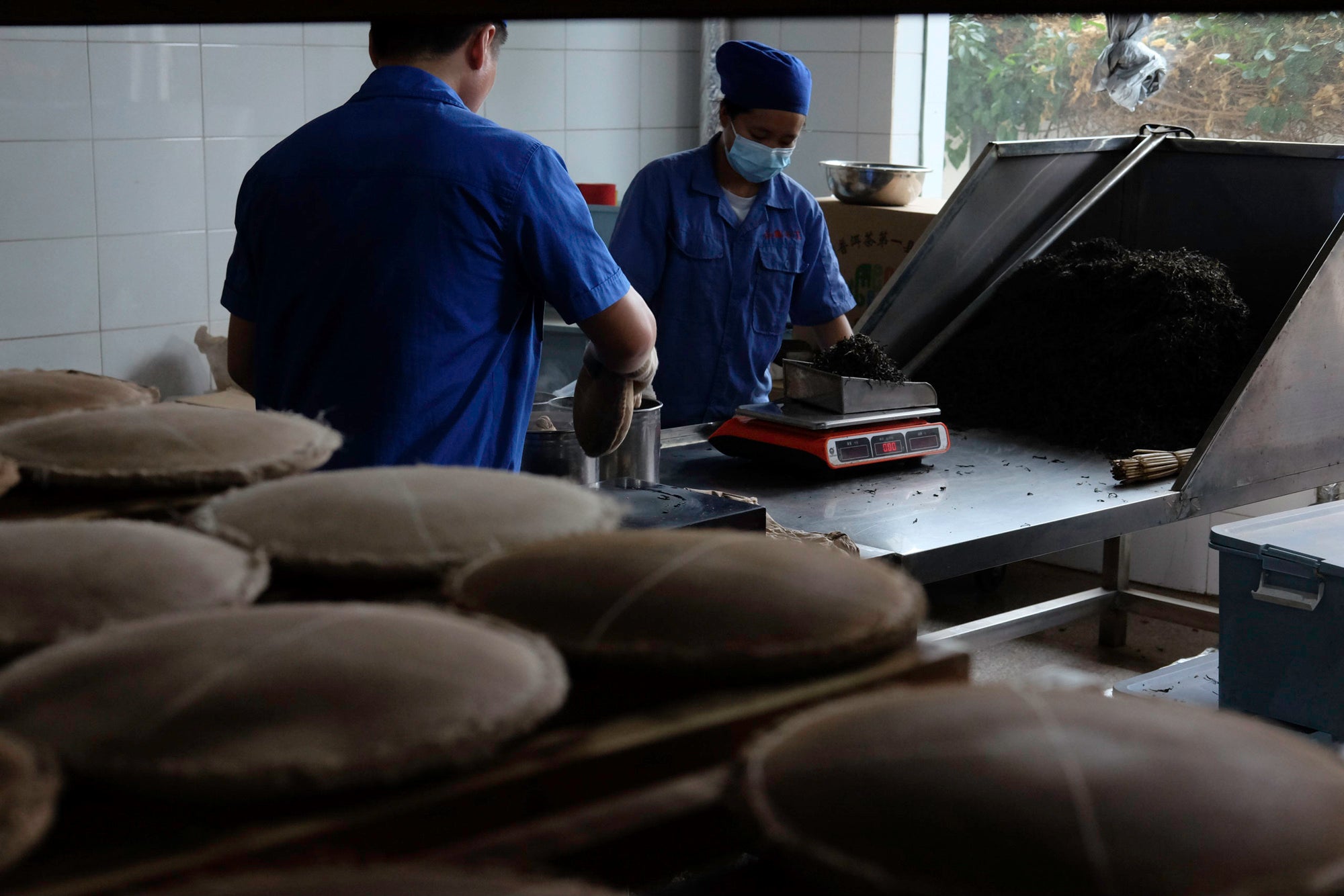from March 12th, 2026
Spring tea tour: Yunnan
Kunming, Dali, Shaxi, Xishuangbanna, Nannuo, Laoman'e, Laobanzhang, Yiwu
The tour starts on the eve of spring, when tea leaves, trees and mountains all are waiting for the first rain: the buds will sprout, and new fragrances and aromas will be discovered.
Our journey begins in the northern reaches of Yunnan, where history and tea intertwine. This part of the tour is dedicated to the vibrant capital of Kunming—home to tea studios, immersive workshops, and the dynamic pulse of the local tea market. From there, we venture into the culturally rich regions of Dali and Shaxi, once the heart of the ancient Nanzhao Kingdom. We’ll walk the legendary trails of the Tea Horse Road, surrounded by breathtaking landscapes and iconic cultural landmarks that tell centuries-old stories of trade, tradition, and tea.
The second part of our journey brings us deep into the lush, subtropical beauty of Xishuangbanna. This is the cradle of premium tea, where the most revered mountains rise and the finest Pu’er teas are born. Here, we will explore pristine tea forests, connect with local producers, and fully immerse ourselves in the energy of the spring tea harvest—participating in and learning from one of the most sacred annual rhythms of the tea world.
We chose the very beginning of spring, when the season has just begun and is not yet hectic: usually, at this time of year, only a small quantity of buds has fully sprouted to be harvested, allowing us to travel the mountains and assist with spring production at a much slower pace, taking enough time to talk with people, learn and experiment with our own hands.
In this travel, you will find everything that makes up Eastern Leaves: our Yunnan, an in-depth dive into Chinese culture, and all the people that make our tea journey meaningful.
March 12th - March 25th, 2026: Spring tea production in Yunnan
Our travel is designed by us, and it is independent by any travel agency: we bring you with us on Eastern Leaves routes, guided by a farmer and tea scholar, through places, tastes and people that are most menaningful for us.
From our travelers
I still can't believe I was in all these amazing places
"I am drinking a rock tea from Wuyishan at home, a month after our trip. Brewed in a beautiful Yixing pot that I bought in actual Yixing, and tea from the mountain that I hiked on. I still can't believe I was in all these amazing places... I am reminiscing about this holiday a lot. It was just perfect. People were incredibly nice. We had wonderful encounters with lots of lovely different tea people and the people in our group where the best. Tea people are so nice. We saw incredible things, drank the best teas and had so much fun together. Everything that was abstract for me beforehand, became concrete while traveling. It's hard to capture my feelings in words, but but I am back home for a month now and there was not a single day that I didn't think about the trip. I wasn't homesick while traveling, but I am tripsick now.
And all of this took place under the caring and enthusiastic guidance of Vivian and Lorenzo, truly two of the most kind, warm-hearted and knowledgeable people that I know."
W.E., from The Netherlands
We have become more sensitive and have touched beauty
"I want to consider a different approach. I don't want to make a review of what went well and what didn't go well. I don't want to dwell on individual stages and describe a fantastic world. I reject any image of travel, tea, an extraordinary country and all that. I want to forget any kind of knowledge I have. Tea lovers already know all about these things. I want to tell them that they don't need "yesterday" because it is the necessary condition to savor any moment with its different temperatures, colors and fragrances. Isn't this what happens when you drink forgotten tea? Isn't it like drinking a new tea, after all? When we abandoned the concept of tea bags, what did we do? We entered an ancient forest for the first time. We put our hands in the clay. We tasted food with a sparkling and surprising flavour. We have become more sensitive and have touched beauty. And this is where the world of Eastern Leaves becomes real"
D.N., from Italy
Our travel package includes accommodation in selected, cosy hotels, all the internal transportation, and meals. It doesn't include the flight from/to your country of origin, visas (but we support your application), and insurance.
Once you decide to travel with us, we assist you in everything we can, following our experience with travellers from all over the world.
We apply special rates for our Eastern Academy alumni: contact us to choose a date and customise together your travel at the origin of tea!
Contact us
Further travel options
Winter Tour, Yunnan
December 22nd, 2025 - January 4th, 2026
Winter in Yunnan is gentle and welcoming, with mild weather, fresh teas ready for tasting, and a peaceful atmosphere. This itinerary explores Yunnan’s diversity through tea, geography, and culture, from the ancient Nanzhao and Dai kingdoms to the high-mountain landscapes.
The tour includes hands-on workshops on brewing, incense, as well as visits to forests, mountains, and tea producers, travelling the mountains of Yiwu, nannuo, Jingmai and Bulang, hosted in many prestigious villages that made the history of pu'er tea.
We’ll meet artisans and professionals, sharing tea and insights into their craft.
With accessible tea roads and fresh teas available, the journey offers an immersive experience of Yunnan and the heart of Eastern Leaves.
China tea tour, May
May 11th - May 26th, 2026
We curated a journey through the places, people, and teas we love most, offering a deep dive into our shared passion.
Starting in Shanghai, we travel to Yixing to meet master ceramicists Yuan Weixin and Lian Meiping. We then head to Wuyishan during the harvest season, exploring the diverse micro-environments that make its rock teas so exceptional, and continue to Tongmuguan to witness the origins of red tea amid its stunning landscapes. Along the way, we discover the famed Jianzhan pottery of Jianyang.
The second half of the tour brings us to our home in Yunnan: from studying gongfucha in Kunming to visiting key pu’er regions like Laobanzhang, Hekai, Nannuo, and Yiwu, walking mountain paths and sharing moments with farmers and tea professionals.
This journey embodies the spirit of Eastern Leaves—tea, culture, landscapes, and the people who bring them to life.
Custom tea journeys
All-year long
In addition to our scheduled tours, we offer custom journeys year-round on our land and the neighbouring mountains, tailored to your preferences and passions. From wilder explorations to focused courses and masterclasses—whether in Yunnan or other tea regions of China—each tour is designed with the same depth and immersion in our tea world.
The duration is completely flexible, based on your schedule and interests. You can draw inspiration from our existing tours or follow your own curiosity. Reach out to us—we’ll be happy to learn more about you and plan your unique tea journey together.
Travel's FAQ
We carefully choose all our accommodations to make sure you have a comfortable and pleasant stay.
In Xishuangbanna, you'll stay in a private villa next to our tea studio, so you can fully immerse yourself in the tea experience.
In other cities, we use trusted hotels we've worked with for years. We choose them for their great service and reliability, and some have even become like a second home to us.
You can see the full list of all our partner hotels in the document below.
To join our tours it is requires a tourist visa: most of the countries can obtain a 30-day visa on arrival.
If you country is not in this list, you need to obtain a regular 30-days visa: the procedure is pretty straightforward, and it is more and more simplified.
We offer all possible assistance based on the experiences of the travellers we have welcomed over the years from all over the world.
For the most recent news on China visa policy, we recommend visiting the website of the China Visa Application Center.
Sure! Food is an important part of our experience (and of our lives), so we plan it carefully.
Chinese cuisine is extremely diverse: it includes countless varieties of tofu and a variety of vegetable cooking techniques; we will encounter tuberoses and radishes, wild herbs and flowers: a plant-based diet, in addition to a onnivore diet, is entirely possible.
We also have experience with various dietary restrictions, such as gluten-free, lactose intolerant, and religious restrictions; when you contact us, please let us know your needs and preferences, and we will gladly plan your meal accordingly.
As you are probably aware, we are huge fans of photography, particularly when done slowly and with passion: if you, too, enjoy cameras and pictures, it would be wonderful to share our enthusiasm along the way.
Photos and videos are permitted as long as they do not disrupt the flow of travel for our farmers and experts, ensuring a pleasant experience for all of our guests.
If you want a tour specifically designed for documentary purposes, complete with filming mics and equipment, please contact us in advance to plan a customised trip.
When you decide to book we advise to keep in touch with us, we will assist you as much as possible with flights from your country of origin, visas, and any preparation you may need.
Visas for China have recently become easier to obtain for the majority of nationalities; for the most up-to-date visa rules, we recommend checking the official Chinese website and your local Chinese Embassy or Consulate.
Yes, if you wish, we can provide you with a digital or printed certificate for your travel experience into tea.
For travellers, China is one of the safest countries in the world, with extremely low crime rates, including pickpocketing.
Our commitment along the route is to keep you as safe as possible, both physically and mentally.
For our longer tours, we usually offer the option to join only a portion of the tour, for at least 12 days, based on availability.
If this is your wish, please contact us so that we can plan your trip together.


